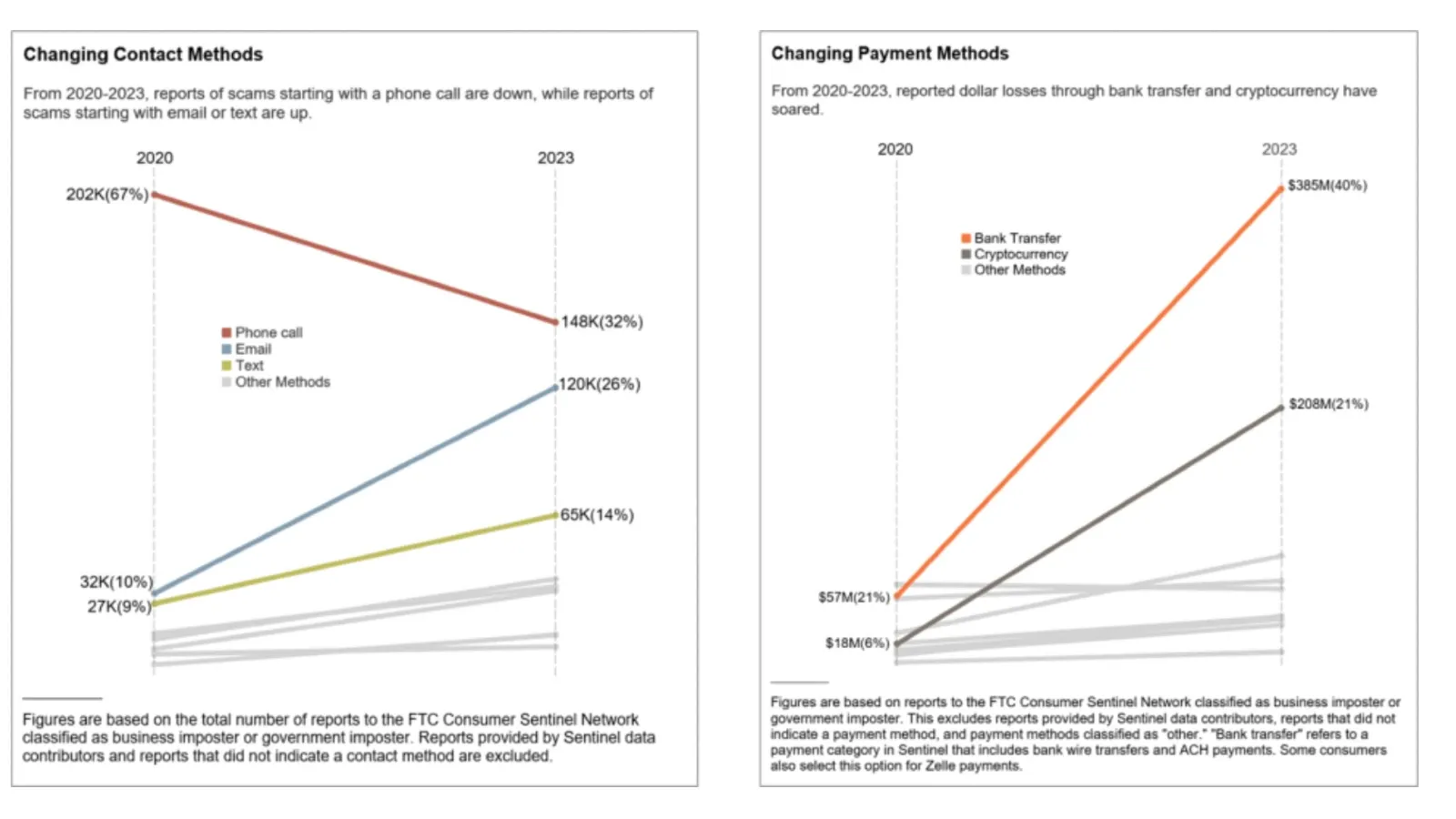FTC cracks down on Impersonation Scams with new regulation
A new Trade Regulation Rule on Impersonation of Government and Businesses goes into effect this month, aiming to protect both consumers and businesses from these costly scams.

The Federal Trade Commission (FTC) is taking a strong stance against scammers who impersonate businesses or government agencies. A new Trade Regulation Rule on Impersonation of Government and Businesses goes into effect this month, aiming to protect both consumers and businesses from these costly scams.
This action comes in response to a staggering increase in impersonation scams, according to a recently released FTC Data Spotlight. In 2023, reports of these scams nearly reached half a million, with financial losses exceeding $1.1 billion - a sharp rise from the $310 million reported in 2020.
Scammers are becoming more sophisticated, shifting from phone calls to text messages and emails. Their preferred payment methods are also evolving to include bank transfers and cryptocurrency, making it harder to trace and recover stolen funds.
How the New Rule Helps
The new FTC rule provides a stronger legal framework to combat these fraudulent practices. Companies that impersonate well-known businesses or government entities can now face serious consequences. Additionally, businesses and individuals need to be aware of the top impersonation scams, including:
- Fake security alerts designed to trick you into transferring money.
- Phony subscription renewals leading to demands for 'refunds' via gift cards.
- Bogus giveaways and prizes requiring upfront payments to claim.
- Fraudulent claims of legal trouble with demands to move funds to Bitcoin ATMs.
- Fake package delivery problems asking for payment on fraudulent websites.
Protect Yourself and Your Business
The FTC offers these tips to avoid falling victim:
- Don't click or respond: Verify unexpected messages through official contact information.
- Never pay with untraceable methods: Legitimate entities won't ask for gift cards or cryptocurrency.
- Slow down and think critically: Scammers rely on urgency; take your time and consult someone you trust.
Businesses should also be vigilant, as their reputation can be damaged by impersonators. Stay informed and educate employees on how to spot scams.
Report Fraud, Get Help
If you encounter a suspicious message or have been a victim of a scam, report it to the FTC at ReportFraud.ftc.gov. For assistance in recovering from fraud, visit What To Do if You Were Scammed.

